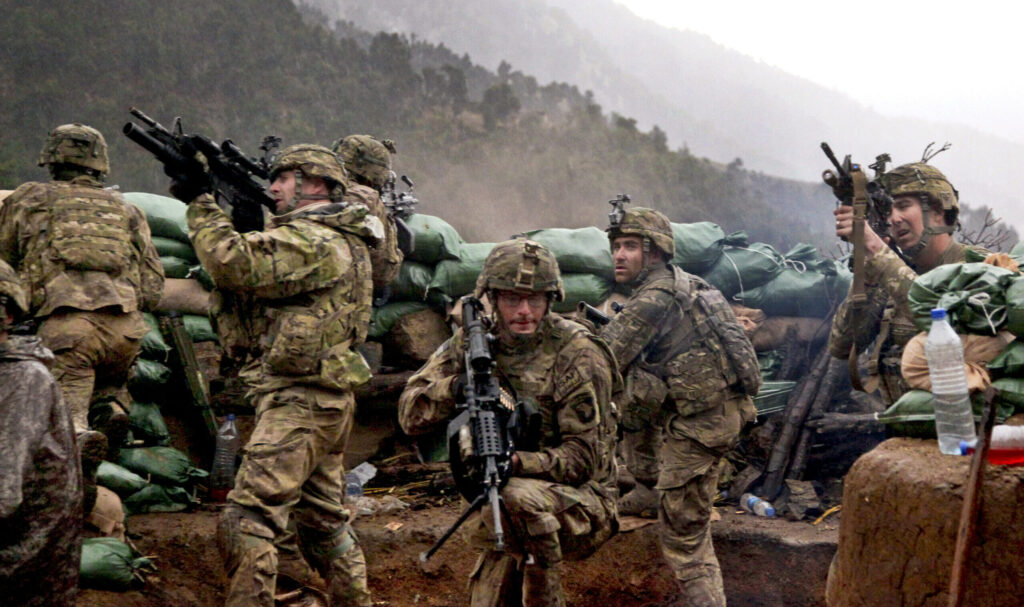🔴 Website 👉 https://u-s-news.com/
Telegram 👉 https://t.me/usnewscom_channel
The post Twenty-three Years After September 11, Have We Seen the End of War? first appeared on USSA News | The Tea Party’s Front Page.. Visit USSANews.com.
Twenty-three Years After September 11, Have We Seen the End of War?
The lessons of two decades of ill-fated war are still to be learned.
“Only the dead have seen the end of war.”
This quote, attributed to Plato, carries real meaning for those of us who fought and lost brothers and sisters in war. We’ve both served in the Middle East supporting the Global War on Terror, an open-ended conflict without an achievable mission that only those we’ve lost have seen the end of.
On this year’s anniversary of September 11, we remember how the events of that tragic day altered our military careers and our lives, like millions more veterans and active-duty members of the United States military. One of us served at ground zero as a guardsman and deployed to Iraq and Afghanistan in the following years. The other spent over two decades in special forces, waging the global war against terrorism.
What we’ve seen and experienced are reminders that even 23 years later, the war isn’t over. In some ways, September 11 isn’t either.
September 11 sparked a justified response from the United States. For the first few months of the Afghanistan War, U.S. forces decimated al-Qaida, punished the Taliban for harboring terrorist planners of September 11, and began the hunt for Osama bin Laden. The former two goals were achieved within those first months of the conflict.
Political and military leaders believed an opportunity existed for the U.S. to rebuild Afghanistan in our own image. So, we remained for 20 years, losing thousands of American lives and billions of dollars along the way. All the while, military brass told Washington and the American people we were winning—whatever that meant.
And though the withdrawal itself was necessary, the speed at which everything we’d built collapsed was proof that nation-building was a fool’s errand, placed on the weary shoulders of warfighters who saw the flaws but did their best to execute their orders anyway.
The Iraq War started shortly after the mission in Afghanistan, sold to Americans as the next step in eliminating terrorism in the name of safety and democratic values, and yet had no direct connection to al-Qaida terrorists or September 11.
Iraq turned into another disaster, over 20 years of death, destruction, and promises of “ending” the war that somehow always still include troops staying in the country. As of this week’s anniversary, troops were still on the ground in Iraq and in Syria, still under threat, subject to rocket, drone, and mortar attacks from Iranian-backed factions that take advantage of our lingering “train and equip” mission to target our troops more easily.
The post-9/11 wars have cost nearly $6 trillion and more than 7,000 American troops have been killed in combat.
Just as disturbing, more than 30,000 post-9/11 war veterans have died by suicide after coming home, four times more than were killed in combat. Their war is over now, but hundreds of thousands of parents, spouses, children, siblings, and friends continue to mourn their losses in grief, pain, and anger.
At the onset of these wars, before all that loss, we believed in the cause. America needed justice for nearly 3,000 lives lost. But we strayed too far from that noble goal. After years of conflict, we still believe in security and justice, and war if absolutely necessary. But in these cases, more than two decades of war shouldn’t have been the answer.
America must defend its core national interests with war and intervention only as a last resort, not a first response. When a perceived threat can only be vaguely tied to a national interest, boots on the ground shouldn’t be the immediate answer. Nor should military action be conducted under outdated and unrelated Authorizations for Use of Military Force without new debate from Americans’ representatives in Congress.
Military action is sometimes necessary, but our leaders must consider the costs, both in dollars and lives. War can’t be emotion-driven, and the decision to go to war should be driven by seeing the geopolitical landscape as it is, not what we wished it looked like. We the warfighters end up paying the price, and it’s steep.
September 11 will not be truly over until everything that happened in its wake is brought to a close. Post-9/11 war veterans will struggle to let the war end in our hearts and minds if the war doesn’t actually end. And our country can’t truly honor the sacrifice of those lost until we stop the unnecessary conflict.
Let’s not forget them either.
The post Twenty-three Years After September 11, Have We Seen the End of War? appeared first on The American Conservative.
Click this link for the original source of this article.
Author: John Byrnes
This content is courtesy of, and owned and copyrighted by, http://www.theamericanconservative.com and its author. This content is made available by use of the public RSS feed offered by the host site and is used for educational purposes only. If you are the author or represent the host site and would like this content removed now and in the future, please contact USSANews.com using the email address in the Contact page found in the website menu.
The post Twenty-three Years After September 11, Have We Seen the End of War? first appeared on USSA News | The Tea Party’s Front Page.. Visit USSANews.com.
Source link
